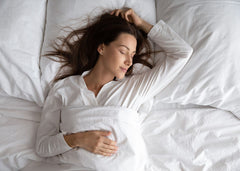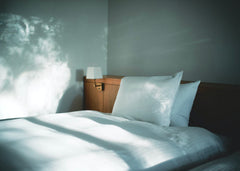You may be familiar with those sleepy episodes you encounter in the afternoon after lunch, and struggle with the thoughts of whether to take a nap or not. If you find your energy levels dipping in the middle of the day, don’t think too much, just go for that lie-down you’ve been craving so much for! Research shows that catching a short nap is great for your health.

Benefits of Napping
1. Improves Memory
Sleep is crucial to your capacity to learn and for your brain to perform its cognitive functions. Scientists say a short snooze that can greatly increase the brain’s capacity to remember and store information.
2. Brightens Your Mood
A short afternoon nap can improve your mood. When we have a poor night’s sleep, a hormone imbalance is created and contributes to our feeling of tiredness and irritability. Taking a short nap not only helps boost energy levels, but also restores your endocrine system back to normal levels, brightening your mood.
3. Improves Health
Having insufficient sleep is known to increase the risk of heart disease. Researchers have found that regular naps can be a great way to reduce the risk of heart issues and compensate for a lack of sleep at night. Napping once or twice a week can lower a person’s risk of heart attack, stroke and heart failure by 48%.
4. Enhances Performance
Naps can restore alertness, enhance performance, and reduce mistakes. A NASA study has shown that a short nap increases a person’s performance by 34% and alertness by 100%. A separate study found a 60-90 minute nap is more effective in boosting performance than a 200mg caffeine intake. (Now you can unreservedly ask for your boss’ permission to take a nap :p)

Negative Effects of a Long Nap / Napping at the Wrong Time
Naps can be a powerful and highly efficient way to temporarily compensate for an inadequate night’s sleep. However, if your nap is too long or is taken too late in the day, it can have negative effects.
1. Feeling Groggy
People who take longer naps may feel groggy immediately after they wake up. This happens when you awake from a deep sleep.
2. Trouble Sleeping at Night
A long nap or one that’s taken too late in the day is likely to affect the quality of sleep at night. This is even worse for people with insomnia, who already have trouble sleeping at night.
How Long Should a Nap Be?
The amount of time that you spend taking a nap depends on the time you have available, but this varies from person to person. The ideal time for a short nap is 20 - 30 minutes, where you can benefit from improved alertness, enhanced performance and being in a better mood. If you nap for more than 30 minutes, you may wake up feeling sluggish and groggy. However, if your sleep was disrupted the night before, you may take a longer nap to complete a full sleep cycle, but ideally not more than 90 minutes.
What’s the Best Time to Take a Nap?
When you’re planning out your nap schedule, don’t forget to time it well too! For most people, the best time to nap is between 1pm to 3pm. Taking a nap too late may affect your sleeping pattern and make it difficult for you to fall asleep at your normal bedtime.

Taking a nap is an excellent way to give your body and mind a short rest, allowing you to wake up feeling more refreshed for the rest of the day. Don’t feel guilty about taking a nap anymore!





